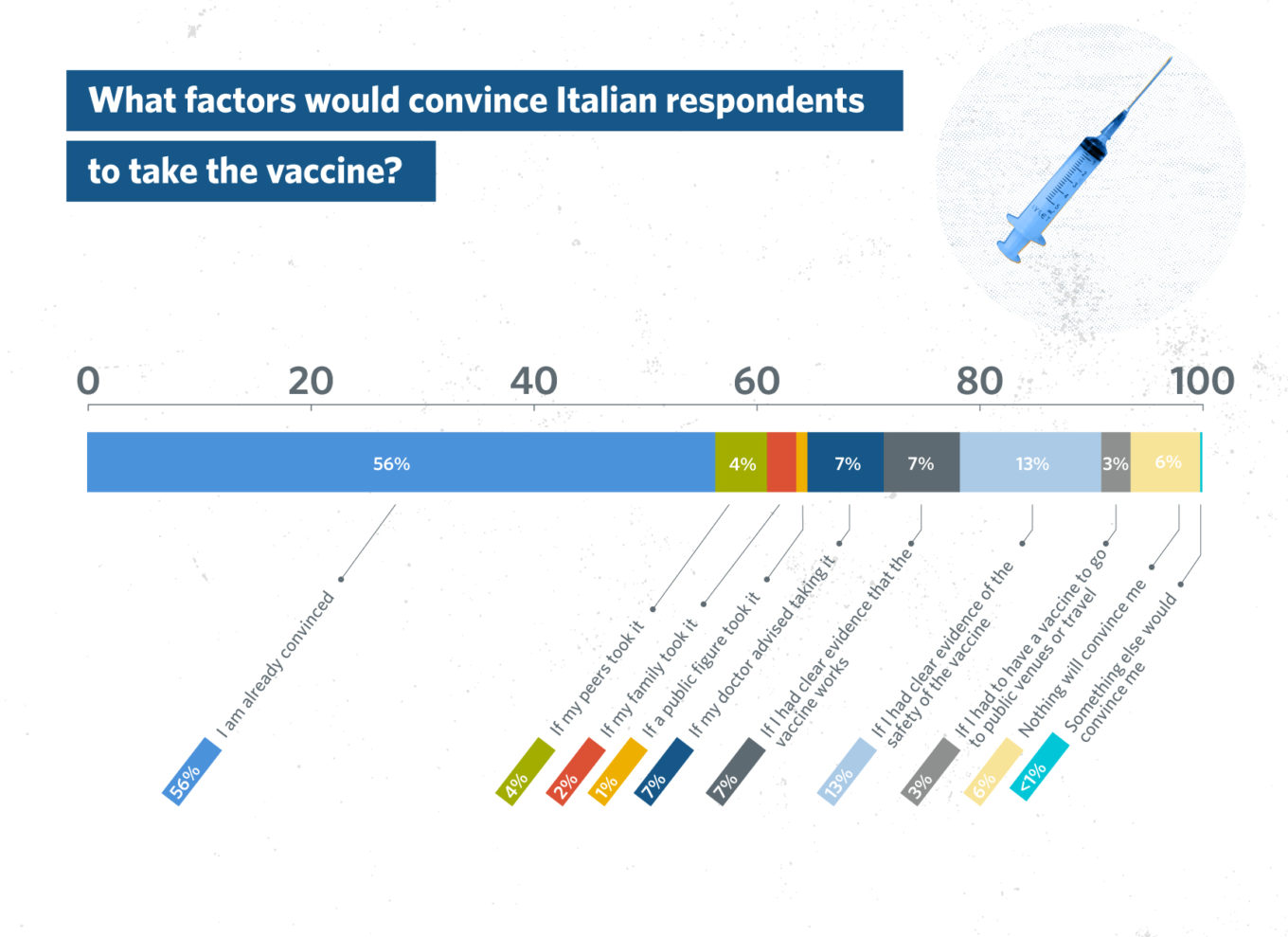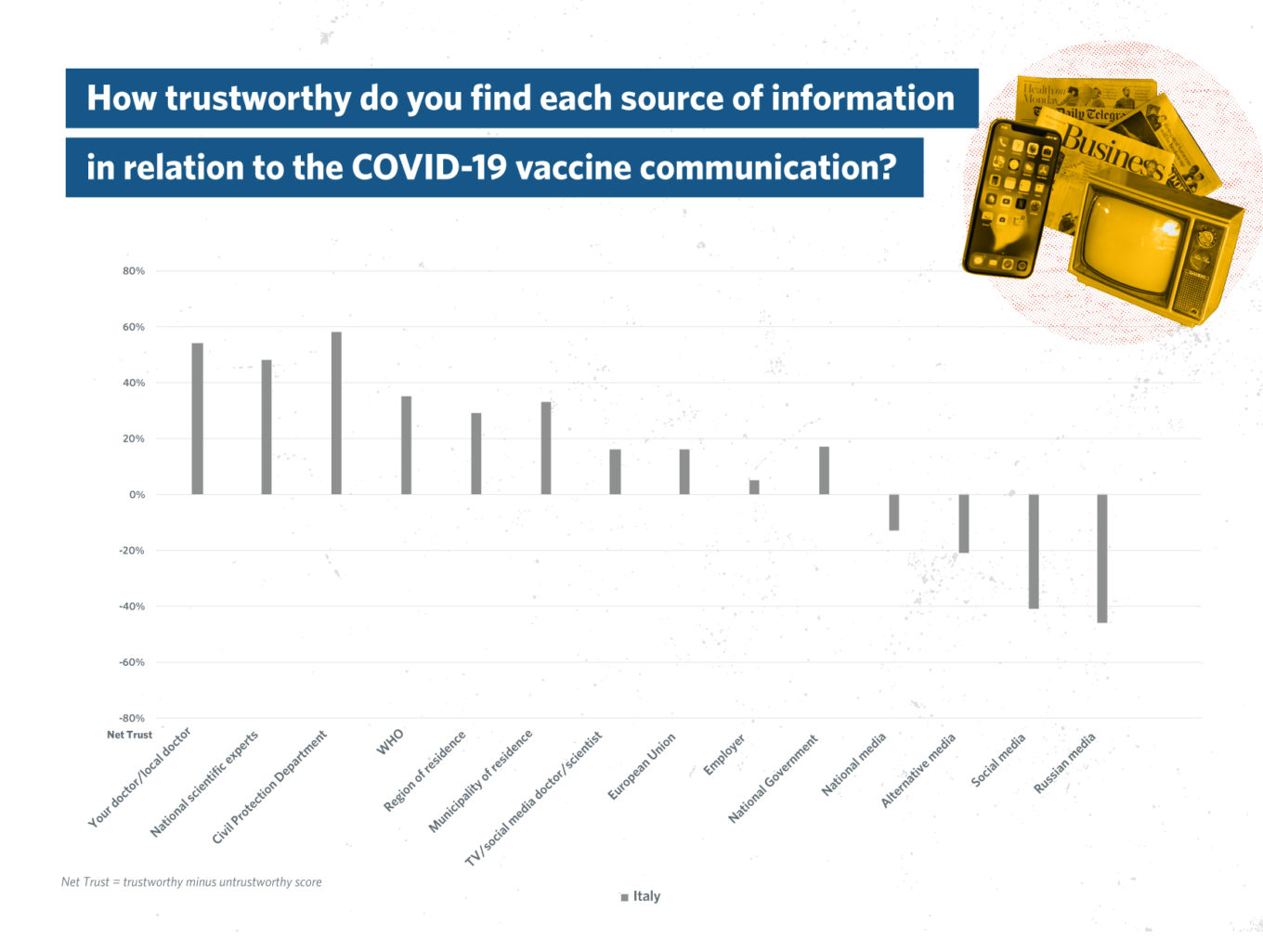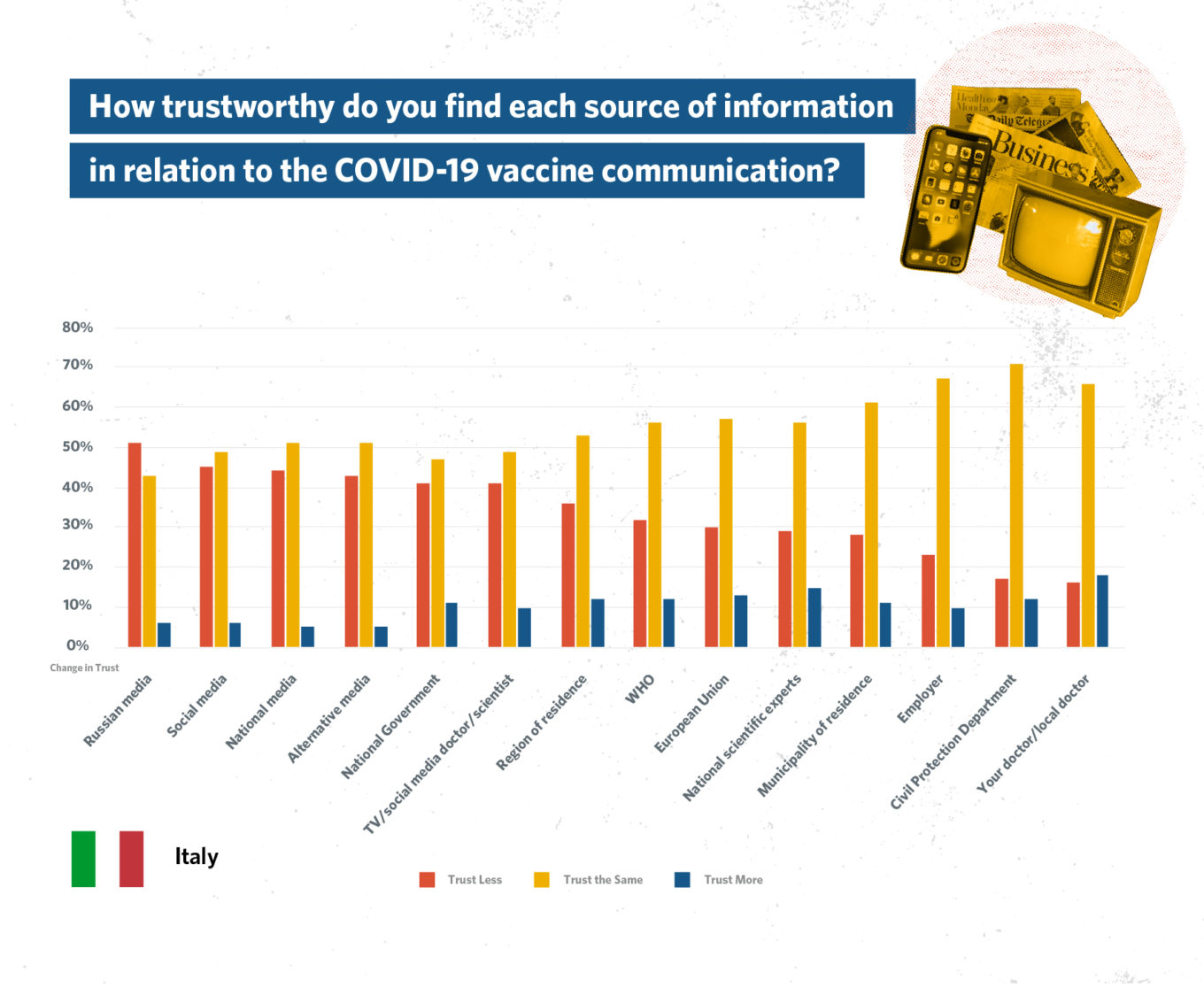When institutions collide: how conflicting narratives have impacted Italy's COVID-19 vaccination efforts
Words by Anna Vuillerod
When institutions collide: how conflicting narratives have impacted Italy’s COVID-19 vaccination efforts
While Italy was the first and most severely hit country in the EU, it is currently among the European country with the highest vaccination rates in the EU. Around 16% of the population has been vaccinated against COVID-19. While a successful vaccination campaign is underway, Italy is also known for being one of the most vaccine-skeptical country in Europe.
Indeed, one of its ruling parties has been spreading an anti-vax narrative since the years of Beppe Grillo beginning in 1998. Vaccine skepticism is not just omnipresent, but institutionalised, having been an integral part of the 5Star Movement’s election manifestos and a motivating factor for some voters. This positioning has continued throughout the past two decades as the Vice-President of the Senate from the 5Star Movement, Paola Taverna claimed in 2018 that “an unvaccinated child is a healthy one” in response to the 2017 “Lorenzin law” seeking to make some vaccines mandatory for children.
Indeed, the populist ruling party, 5Star Movement, spent nearly a decade questioning vaccines to then see its members split on this question with some softening or hardening their position in the recent years and even more so given the context of the COVID-19 Pandemic.
These parties fluctuated from targeting science as being a part of their anti-establishment views to signing the “pact for science” in 2019, which sought to prevent the distortion of medical and scientific facts for political gain. In the past, the coalition stood with anti-vaxxer groups during electoral campaigns, promising to overturn the pre-existing law that made vaccines mandatory.
However, the organisational structure of the 5Star movement evolved along with its members. The movement was faced with the reality of having to govern which instilled some distance from any past associations with the anti-vaccine movement. Members adapted their position towards more mainstream views on vaccines as the movement attempts to strike the fine balance between populism and respectability. A clear example of this shift is when a 5Star member, Deputy Health Minister, Pierpaolo Sileri, says that the vaccine against COVID-19 should be mandatory after having presented an amendment to relax the Lorenzin law in 2019.
The debate around the mandatory nature of some vaccines remains central to the current situation with the latest decision, making Italy the first EU country to make the COVID-19 vaccine mandatory for health workers.
In the midst of the institutionalisation of conflicting vaccine narratives and the late political fluidity, how does the population view COVID-19 vaccines? Our point of interest lies in whether the former have had an impact on today’s vaccine hesitancy in Italy and whether Italians are more skeptical than other Europeans.
Our research suggests that 56% of Italian citizens are currently willing to take the vaccine. To dive in further into the acceptance rates and factors influencing acceptance of a COVID-19 vaccine, a survey conducted in June 2020 found that 70% responded positively to question “If COVID-19 vaccine is proven safe and effective and is available to me, I will take it”.
Our study placed the “trust” metric at its core. We sought to unravel which sources of information Italians trust the most and the least with respect to COVID-19 vaccines. Our results show that the closer people are to their sources, the better. Italians have a net trust of 58% and 54% in their civil protection department and local doctors respectively. On the other hand, national media appears to be one of the least trusted sources of information for COVID-19 (–13%) but not as much as social media (-41%) and foreign sources such as Russian media, which has been active with misinformation campaigns since the beginning of pandemic, has the lowest trust figure (-46%).
Interestingly, this local trust has been exacerbated between the first and second COVID-19 waves. Our research asked whether there was a change in people’s trust, per source, between both waves. Our results show that the sources which scored highest in terms of stability were the Civil Protection Department (71%), employers (67%) and doctors (66%). When it comes to the trust instilled in the EU institutions, it has decreased overall with 30% responding they trust the institutions less against only 13% trusting them more.
However, at the national level, as conflicting messages and criticisms on the handling of the crisis emerged, 41% responded trusting their national governments less with only 11% trusting them more, which reflects the current situation of political distrust in Italy. According to a researcher at the University of Bergamo, Dr. Andrea Rubin, the level of confidence Italians placed in the experts and the government in the first wave “largely deteriorated”.
Italian citizens’ evaluation of how well local, national and international institutions (including WHO) are managing the current crisis was also assessed between the first two waves. Our data indicates that 29% of Italians place less trust in the role of national scientific experts compared to only 15% trusting them more, alongside the WHO, which 32% trust less and only 12% trust more than during the first wave.
What can be done about it? While understanding what drives trust and distrust, it’s also key to identify potential avenues by which vaccine confidence can be promoted. While 56% of Italian respondents expressed confidence in vaccines, 44% indicated they needed further convincing before receiving the jab. Aside from the 6% of respondents who indicated nothing could change their mind, our research shows that clear evidence of the safety is the key component with 13% responding “if I had clear evidence of the safety of the vaccine”. Further, in terms of peer pressure, public figures have the least impact but 8% would take it if friends or family took it.

To sum up, anti-vax parties and movements have been strong for over two decades but have seen the need to tone down their messages as they entered the ruling coalition. Further, the value COVID-19 vaccines offer to public health and a way out of this crisis are simply undeniable.
We have seen national trust deteriorating between the first and second wave, presenting some important lessons to learn for the ongoing vaccine roll out and the communication strategies national institutions should opt for.
Our research indicates there is willingness to take the vaccine if people know they are safe. It seems that it is up to us all to communicate in a local and targeted manner through sources the public trusts.
Check out our full report for more insight!
-

Haven is a policy and political outreach specialist who supports clients in health sectors by directing engagement with Brussels stakeholders. Prior to joining FleishmanHillard, she worked as head of office for a Member of the European Parliament on two committees: Environment, Public Health and Food...
Find Out More
-
Why the EU can’t risk failure at COP27
November 4, 2022




